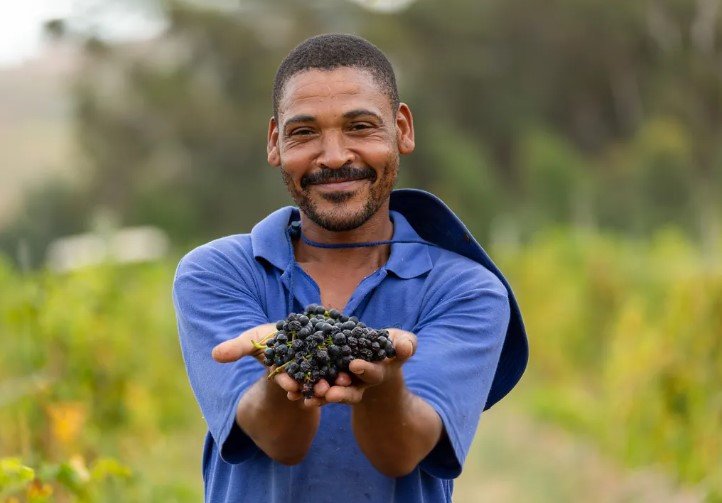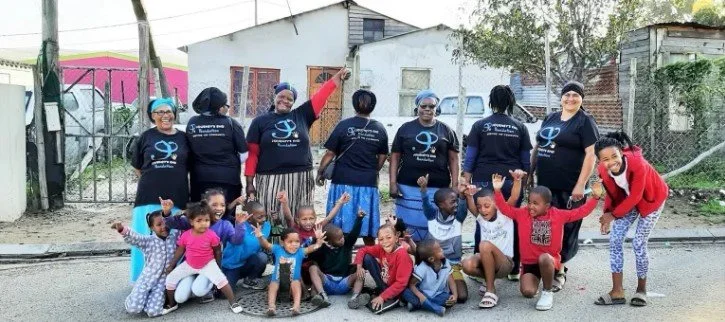Journey’s End: ‘Every company should strive to be as ethical as they can’ / Vino-Joy
Is organic or sustainable enough to measure a wine? Journey's End from South Africa is showing the world how wineries take care of their vines should be as important as how it treats its people and local community.
From ‘minimal intervention’ to actress Cameron Diaz-powered ‘Clean wine’, wine world is never short of buzz words. And the focus more often than not is on the land and what the wine is done without.
Journey’s End, a South African winery nestled among the Schapenberg hills in Stellenbosch, is expanding the conversations on wine to include producer’s ethical practices. The idea is to look at not just how winery takes care of its vines and land but further on how it treats its people and local communities.
Bought by the Gabb family in 1995, conversations on wine within the family and winery never strayed too far from local community, where in South Africa’s post-apartheid world poverty grips local families more tightly than the roots of the vines.
As Christine Andrews, the winery’s Asia Pacific manager told me over Zoom recently, “so right from day 1, they always wanted to help local community.”
Journey’s End is underlining the ethical practices of wine companies beyond being sustainable, organic and biodynamic
Located not far from Sir Lowry’s Pass Village, an impoverished settlement on the outskirt of Western Cape, one of the winery’s early outreaches to help the community is hiring residents from the settlement to empower them with job opportunities.
Additionally, the winery is donating resources through local church, and from there a wine called ‘Pastors’ Blend’ is born, an entry level wine created with Pastors Johnny Clink and Leister Allies from the church. Its wines are sold in Hong Kong through Links Concept.
Amid the pandemic, the winery set up a soup kitchen in August 2020, as a result of worsening poverty and hunger caused by Covid-19, and provided over 500,000 meals to local communities through its Journey’s End Foundation within a year. The winery has now expanded soup kitchens to eight across South Africa and aims to provide over 1 million meals by the end of this year, says Andrews.
Journey’s End is helping local communities by creating job opportunities and donating resources to local churches and among others
“Every company should strive to be as ethical as they can. If one is fortunate to own an estate and run a successful business one has a duty not only to be a custodian of the land and to protect the wellbeing of animal and plant life, but one also has a duty to help the broader community,” says Rollo Gabb, Managing Director of Journey’s End when aske the emphasis on winery’s ethical practices.
Having becoming a founding member of Sustainable Wine Roundtable (SWR) and also a WWF Conservation Champion for its ongoing commitment to sustainable farming and conservation of biodiversity, but for Gabb, being organic or sustainable is far from enough to measure a winery’s success.
“We are driven by success but measure success through many criteria which include the well being of our team, our community, our farm (conservation), and our business as a whole (financial success). Each of these carries equal value in the measurement of success,” he continued.
“As with such extreme poverty in South Africa – building Journey’s End to be a true force for good that benefits our community and helps poverty can only be the right thing to do. The better our business does the more we can help others.”
Aside from charitable works done from Journey’s End Foundation, the winery is a main supporter of Beat the Bully program, which focuses on eradicating bullying in the Cape townships through education and intervention.
Its efforts were recognized when it was named Ethical Company of the Year by the Drinks Business Green Awards, in recognition of its charitable works to lift local communities.
The winery converted to solar power in 2014 and became Fairtrade certified in 2017. Most recently, the winery achieved carbon negative status and planted over 6000 spekboom, known as “carbon sponge”. One hectare of mature spekboom thicket can remove up to 15 tonnes of carbon dioxide per year, which is up to 7.5 times more than mature woodland.


